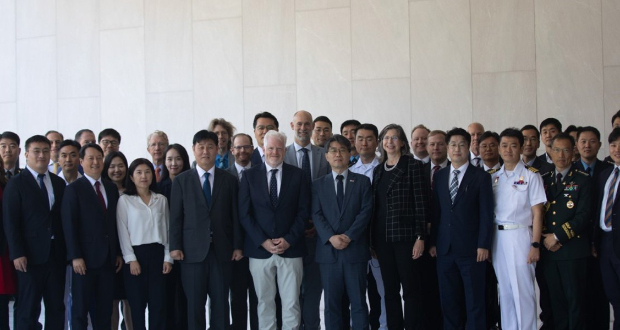Both nations recognized the importance of a resilient and integrated defense-industrial base capable of sustaining long-term military operations and responding to emerging threats. The conference brought together high-ranking experts and practitioners from both nations to discuss the future of the U.S.-ROK defense-industrial partnership and to better understand options for enhanced bilateral and multilateral collaboration.
In his opening remarks, CSIS president John J. Hamre emphasized the urgency of deepening the ROK-U.S. alliance into a “third-generation” partnership where the respective defense industries are deeply interconnected, promoting joint development and production amid global geopolitical shifts. ROK keynoter Minister Seok, JongGun of DAPA reflected on this concept, proposing a “generation 3.5” partnership that incorporates joint operations and sustainment, underscoring the need for robust cooperation to ensure a stable defense supply chain. On the basis of the now 70-year ROK-U.S. alliance, he outlined the evolving nature of defense cooperation, extending beyond military aid and technology transfer to include joint research and development and production.




